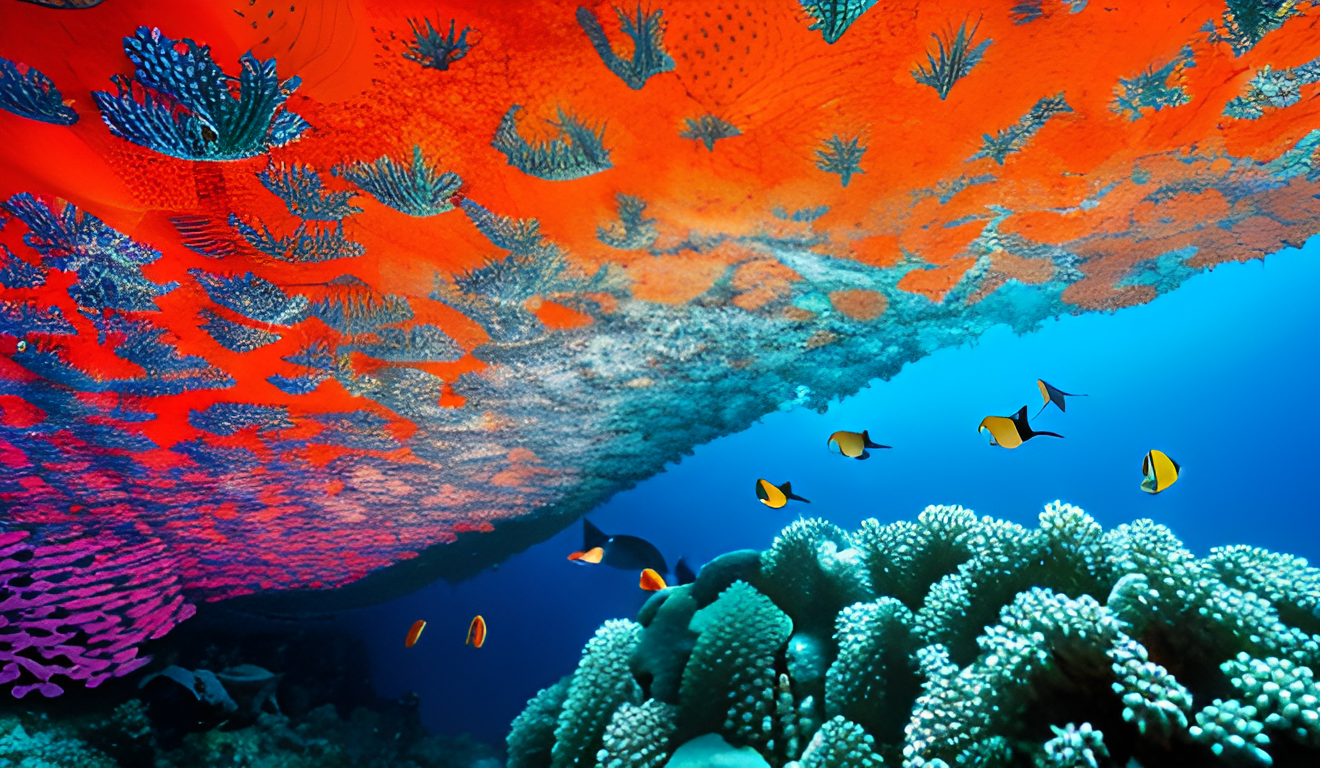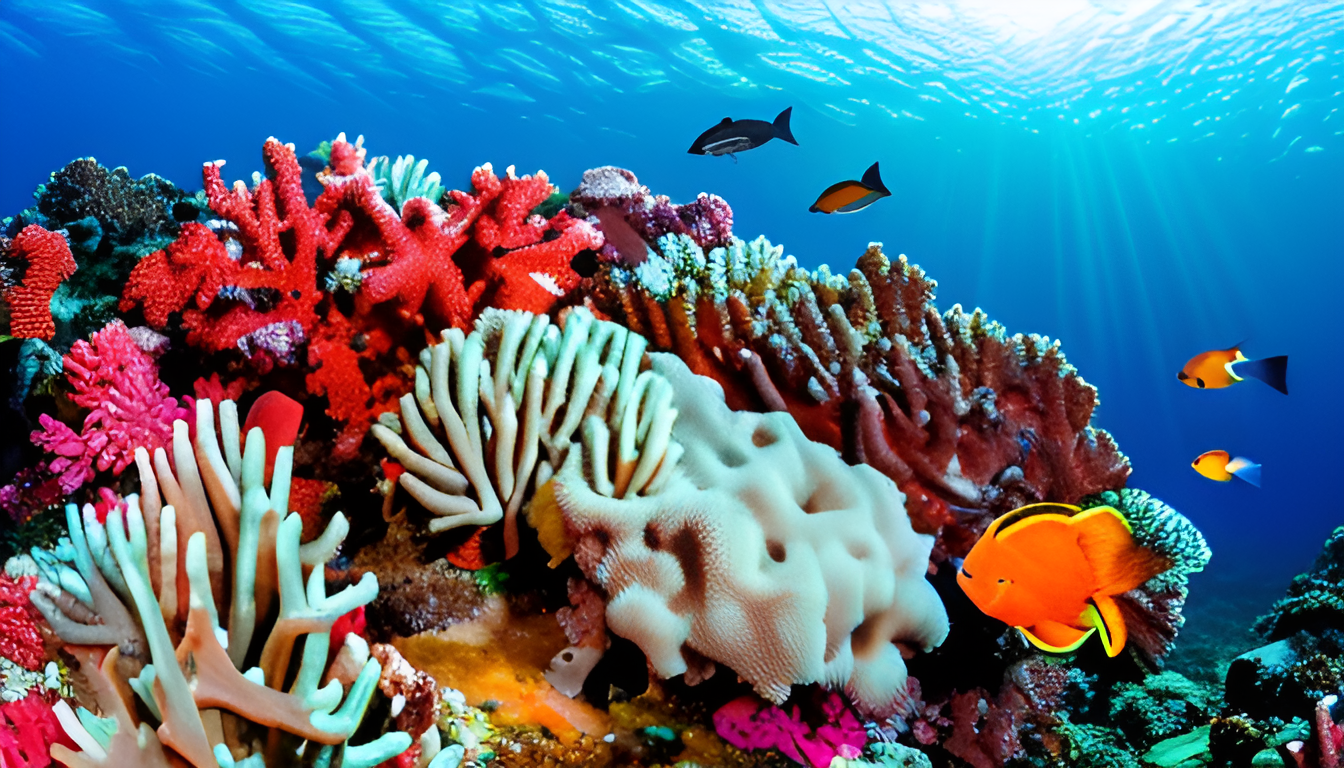Great Barrier Reef Reports Largest Coral Decline in 39 Years

This article explores the alarming statistics surrounding the recent coral decline in the Great Barrier Reef, its implications for marine biodiversity, and the urgent need for conservation efforts.
Coral reefs are vital ecosystems, and understanding the factors contributing to their decline is essential. This section delves into the main reasons behind the recent coral loss in the Great Barrier Reef.
The decline of coral reefs significantly affects marine biodiversity. In this section, we discuss how the loss of coral impacts various marine species and the overall health of ocean ecosystems.
Addressing coral decline requires immediate action. This section highlights ongoing conservation efforts aimed at protecting the Great Barrier Reef and restoring its coral populations for future generations.
The future of the Great Barrier Reef hangs in the balance. Here, we examine the potential consequences of continued coral decline and the importance of sustainable practices to ensure the reef’s survival.
Understanding Coral Decline
The Great Barrier Reef, a stunning natural wonder, is facing an alarming crisis. Recent reports indicate that coral cover has plummeted to unprecedented lows, marking the largest decline in 39 years. But what exactly is causing this dramatic loss? Understanding the factors behind coral decline is crucial for anyone who cares about our oceans.
Coral reefs are incredibly sensitive to environmental changes. A few key factors contributing to their decline include:
- Climate Change: Rising sea temperatures lead to coral bleaching, a phenomenon where corals expel the algae that provide them with color and nutrients.
- Pollution: Runoff from agriculture and urban areas introduces harmful chemicals and sediments into the ocean, smothering corals and disrupting their growth.
- Overfishing: Unsustainable fishing practices deplete fish populations that are vital for maintaining the balance of the reef ecosystem.
Each of these factors interacts in complex ways, creating a perfect storm for coral ecosystems. Imagine a delicate balance, like a tightrope walker trying to maintain equilibrium; any disturbance can lead to a catastrophic fall. In this case, the fall is not just the loss of coral but the potential collapse of entire marine ecosystems that rely on these reefs for survival.
To truly grasp the magnitude of this issue, consider that coral reefs support about 25% of all marine species. This means that as coral declines, so too does the diversity of life in our oceans. If we don’t act now, we risk losing not only a breathtaking natural resource but also the myriad of species that call the reef home.
Impact on Marine Life
The decline of coral reefs is not just a statistic; it’s a catastrophic event that sends ripples through the entire marine ecosystem. Coral reefs, often referred to as the “rainforests of the sea,” provide crucial habitats for a multitude of marine species. When these vibrant structures begin to disappear, the consequences are dire. Imagine a bustling city suddenly losing its infrastructure—chaos ensues, and life as we know it is disrupted.
Coral reefs are home to over 25% of all marine species, including fish, mollusks, and crustaceans. As coral health declines, so does the abundance and diversity of these creatures. For instance, many species rely on coral for shelter and food. Without healthy coral, fish populations dwindle, leading to a domino effect that can disrupt fishing industries and local economies dependent on marine resources.
Moreover, the loss of coral can lead to increased ocean acidification and rising water temperatures, which further threaten marine life. Species such as sea turtles, which depend on coral reefs for nesting, face significant challenges as their habitats are destroyed. The following table illustrates some of the key species affected by coral decline:
| Species | Impact of Coral Decline |
|---|---|
| Clownfish | Loss of habitat and breeding grounds |
| Sea Turtles | Reduced nesting sites |
| Coral Predators (e.g., Crown-of-Thorns Starfish) | Population imbalance due to lack of prey |
As we witness these changes, it becomes clear that the health of coral reefs is intrinsically linked to the health of our oceans. The decline of these reefs is not just an environmental issue; it’s a call to action for conservation efforts. We must work together to protect these vital ecosystems and ensure the survival of countless marine species.

Conservation Efforts
The fight to save the Great Barrier Reef is more critical than ever, with numerous underway aimed at reversing the devastating coral decline. These initiatives are not just about saving a beautiful underwater landscape; they’re about preserving an entire ecosystem that supports an incredible variety of marine life. From scientists to local communities, everyone has a role to play in this urgent mission.
One of the key strategies involves restoration projects that focus on replanting coral and enhancing the resilience of existing reefs. These projects utilize cutting-edge technology, such as coral gardening, where healthy coral fragments are cultivated in nurseries before being transplanted back into damaged areas. It’s a bit like tending a garden, but underwater! By nurturing these coral seedlings, conservationists hope to create a thriving habitat for marine species.
Moreover, local communities are actively engaged in conservation efforts. They participate in monitoring programs, helping to collect data on coral health and water quality. This grassroots involvement is vital, as it fosters a sense of ownership and responsibility towards the reef. Additionally, educational campaigns are raising awareness about the importance of sustainable practices, encouraging both tourists and locals to minimize their impact on the environment.
Government policies also play a crucial role in conservation. Legislation aimed at reducing pollution and regulating fishing practices helps protect the reef from further damage. For example, the establishment of marine protected areas restricts harmful activities, allowing ecosystems to recover. However, these efforts require ongoing support and funding to be truly effective.
In summary, while the challenges facing the Great Barrier Reef are daunting, the combined efforts of scientists, local communities, and policymakers provide a glimmer of hope. By working together and embracing innovative solutions, we can ensure that this natural wonder continues to thrive for generations to come.
Future Outlook
The future of the Great Barrier Reef is precarious, and the stakes couldn’t be higher. With the recent reports indicating a staggering coral decline, it’s like watching a slow-motion train wreck—one that impacts not just the reef but the entire marine ecosystem. If we don’t act now, we may witness a dramatic shift in marine biodiversity, where species that rely on coral for survival face extinction. Can we afford to let this happen? Absolutely not!
Scientists warn that if the current trends continue, we could see a total collapse of the reef’s ecosystem within the next few decades. To put it into perspective, the Great Barrier Reef supports approximately 1,500 species of fish, 400 species of coral, and countless other marine organisms. Imagine a world where these vibrant communities are replaced by barren seascapes. It’s not just a loss of beauty; it’s a loss of livelihoods for countless communities that depend on tourism and fishing.
However, there is hope. Ongoing conservation efforts are crucial in reversing this decline. Initiatives such as coral gardening, where fragments of coral are cultivated in nurseries and later transplanted back to the reef, show promise. Additionally, stricter regulations on fishing and pollution can help mitigate further damage. But these efforts require global cooperation and a commitment to sustainable practices.
Ultimately, the future of the Great Barrier Reef hinges on our actions today. If we prioritize conservation and adopt sustainable practices, we can ensure that this natural wonder continues to thrive. The question remains: will we rise to the challenge and protect our planet’s most precious ecosystems, or will we watch in silence as they fade away?













